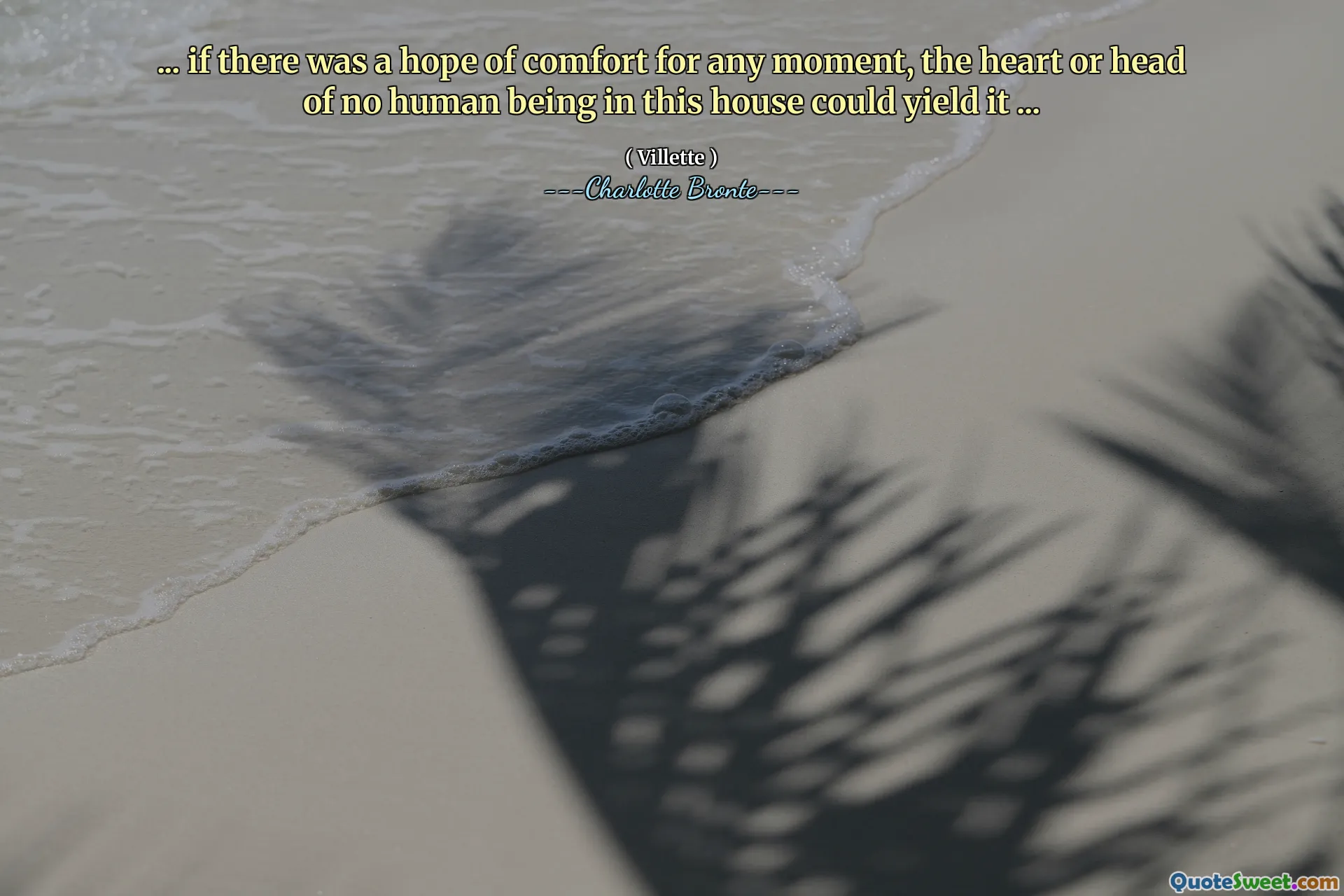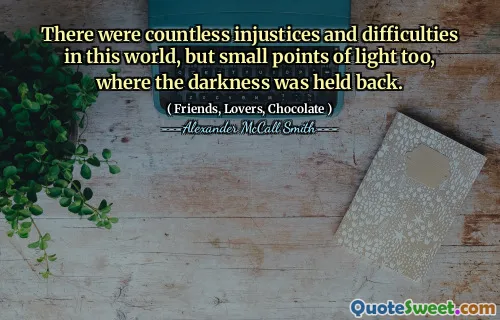
... if there was a hope of comfort for any moment, the heart or head of no human being in this house could yield it ...
This quote vividly captures a profound sense of despair and hopelessness that pervades the environment being described. It reflects a moment when comfort seems entirely inaccessible, even unattainable, to anyone within the house. The phrase suggests an emotional landscape marked by suffering or turmoil so intense that even the possibility of relief or solace is beyond reach. Such a depiction can evoke a sense of tragedy, emphasizing the depth of human vulnerability when faced with persistent pain or hopeless circumstances. It makes one reflect on how environments and internal states can suppress the human capacity for comfort, leaving individuals in a state of resigned despair. The phrase also prompts contemplation about the nature of hope itself—how fragile and elusive it can be during times of intense suffering. It reminds us that sometimes, the circumstances surrounding individuals are so dire that any hope appears futile and distant, leading to profound emotional stagnation. In literature, such expressions often serve to deepen readers' understanding of characters' internal struggles, anchoring them in the emotional reality of the narrative. This quote resonates on a universal level, as humans can experience moments where even the faintest glimmer of hope evaporates, leaving behind a bleak landscape. It underscores the importance of kindness, understanding, and empathy, especially when faced with such overwhelming despair in real life or fictional worlds.






